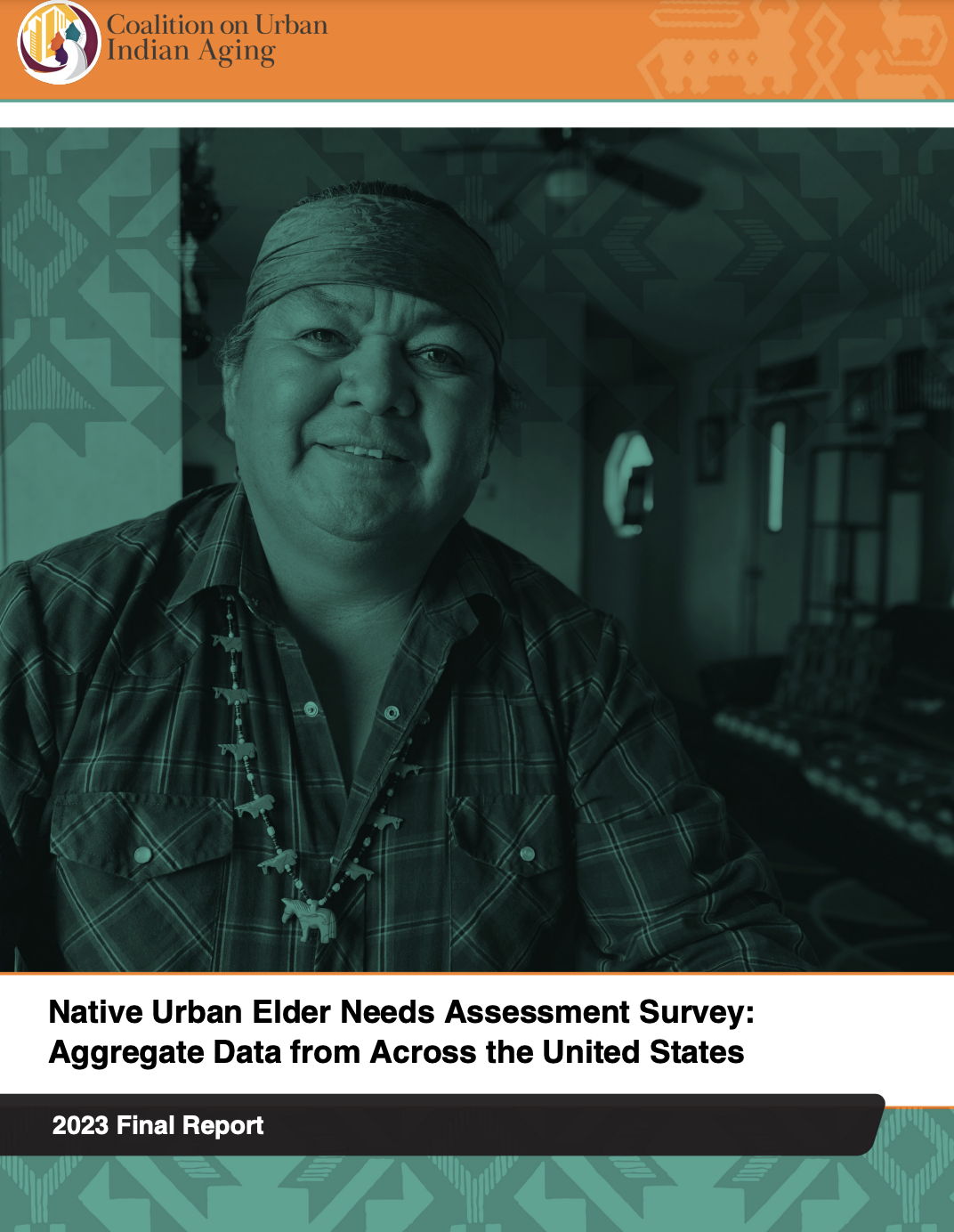
- Details
- By Kaili Berg
A first-of-its-kind study released this week revealed that Native elders living in urban centers face food scarcity and many who have health conditions take care of their grandchildren.
The first ever Native Urban Elder Needs Assessment Survey was administered nationally to understand the needs of urban American Indian and Alaska Native Elders and raise awareness about the population.
The survey, conducted by the National Resource Center on Native American Aging (NRCNAA), sought to gain insight into the current health and social needs of the Native elder population.
In total, 1,020 urban Elders from 41 states, ages 55 and older, were surveyed from March 2021 to November 2022. Respondents reported on social and health issues, including general health, frequency of health screenings, memory and disability, alcohol and tobacco use, healthcare access, social activities, and other factors related to health and well-being.
 Make A Donation Here
Make A Donation Here
Collette Adamsen, the director of the NRCNAA and associate director of the Center for Rural Health, said the organizations hope the study empowers tribes and Native American organizations with the necessary information to identify existing needs and address them through planning efforts, policies, and resources.
“Our Native urban population is underrepresented in national data sets, which is key to identifying and addressing the needs of this population,” Adamsen said. “If there is no data to justify the needs, then Native urban Elders are left out of the conversation, especially when it comes time for the allocation of resources and funding.”
Seventy percent of surveyed Native elders live in urban areas and not on reservations. Most indicated that they were born or grew up in an urban area, or moved to an urban area for educational or work opportunities.
When asked to rate their overall health status, most participants indicated having good or fair health. High blood pressure, arthritis and diabetes were the most commonly reported health issues.
Almost 40% of participants reported being diagnosed with a disability. Of those with a disability, 37.9% said it was due to chronic disease, 35.5% due to accident or injury, and 5.9% military service. About 93% of Native Elders reported to have not served in the U.S. military and only 6% reported doing so.
Among those who participated in cultural practices and traditions, smudging and powwows were the most common. Additionally, 26% reported socializing a few times per week, while 25% never socialize weekly.
Most participants said that the nutritional quality of their diet was good, although almost 29% were at high nutritional risk. Close to one-third skipped meals or ate less than they felt they should due to not having enough money for food. About 35% consumed traditional foods regularly, with the most commonly listed items being wild rice, beans, corn, frybread, fish, and salmon.
Among the 35.5% of urban Native elders who take care of their grandchildren, the average number of chronic illnesses was 3.15%; 11.8% made less than $5,000 annually; 58.2% said their health was excellent, very good, or good. About 15% reported being the primary caregiver of their grandchildren.
“This effort is about improving the quality of life for our urban Native elders and allowing them to access the services and resources that will improve their health and well-being -- to let them know that they are not forgotten," Adamsen said.
More Stories Like This
‘You Are Never Alone’ | How One Tribe Is Fighting Youth Suicide With Culture and Crisis Response‘Our Culture is Prevention’
This National Cancer Prevention Month, Reduce Your Risk
New Mexico Will Investigate Forced Sterilization of Native American Women
USDA Expands Aid for Lost Farming Revenue Due to 2025 Policies

